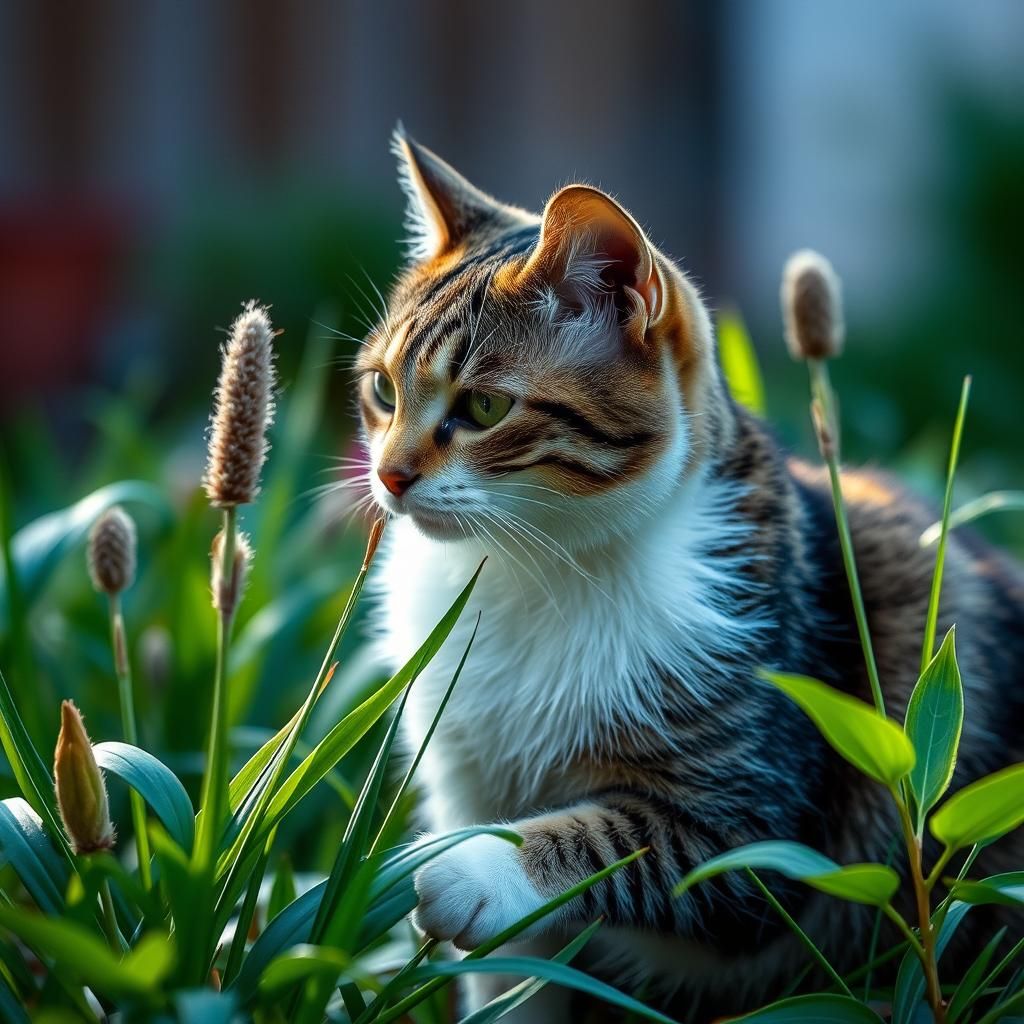Effective Strategies to Stop Cats Crapping in My Garden: A Comprehensive Guide

Dealing with cats using your garden as their litter box can be frustrating for any homeowner. Not only can it damage your plants, but it can also lead to unpleasant odors and hygiene issues. Fortunately, there are several effective strategies you can employ to deter felines from claiming your outdoor space. This comprehensive guide will explore a variety of methods, ranging from humane deterrents to gardening techniques that can help keep cats at bay. By implementing these strategies, you can protect your garden while maintaining a peaceful coexistence with your neighborhood's feline visitors.
Effective Strategies to Stop Cats from Defecating in Your Garden
To prevent cats from using your garden as a litter box, it's important to implement a combination of barriers and deterrents. One effective method is to create physical barriers, such as low fences or garden netting, to restrict access to your plants. Additionally, utilizing natural repellents like citrus peels or coffee grounds can make the environment less inviting for cats. Planting cat-repelling herbs, such as rue or lavender, can also discourage their visits. Finally, providing alternative areas for the cats, such as a designated space with sand or soil, can redirect their behavior away from your garden.
Understanding Feline Behavior
Understanding feline behavior is crucial in addressing why cats may choose your garden as a toilet. Cats are instinctively drawn to soft soil or loose mulch for digging and covering their waste. When outdoor cats roam in an area, they often pick spots that feel secure and have good visibility, making gardens an appealing option. By gaining insight into these behaviors, you can better tailor your strategies to deter them from your space.
Physical Barriers to Keep Cats Away
Installing physical barriers can be a straightforward and effective way to prevent cats from entering your garden. Options include low fencing, chicken wire, or even decorative garden trellises that not only serve as a visual deterrent but also prevent cats from digging and accessing the soil. Ensure that barriers are tall enough and secured to the ground to prevent cats from jumping over or burrowing underneath.
Natural Deterrents for Gardens
Using natural deterrents can provide a safe and eco-friendly solution to discourage cats from defecating in your garden. Some effective options include citrus peels, vinegar, or commercial cat repellant sprays that contain natural ingredients. Sprinkling coffee grounds around the garden or using scents like lavender or rosemary can also be beneficial, as many cats dislike these odors.
See also:
Creating a Designated Area for Cats
To redirect cats and limit their access to your garden, consider creating a designated area for them. This space can include a sandbox or a small section of your yard filled with loose soil where cats can dig and relieve themselves. By providing this alternative, you not only protect your garden but also give the cats a comfortable place to meet their natural instincts.
Planting Cat-Repelling Flora
Incorporating cat-repelling flora into your garden design can serve as a natural deterrent against feline visitors. Certain plants like rue, lavender, and Coleus canina are known for their ability to repel cats due to their strong scents. Strategically planting these herbs around the perimeter of your garden can create an invisible barrier, while still enhancing the aesthetic appeal of your outdoor space.
| Method | Description |
|---|---|
| Physical Barriers | Low fences or netting to prevent access. |
| Natural Deterrents | Citrus peels, coffee grounds, and essential oils. |
| Designated Areas | A sandbox or soil pit for cats to use. |
| Planting | Using herbs that repel cats. |
Understanding Feline Behavior to Prevent Garden Mess
To effectively stop cats from crapping in your garden, it is crucial to understand their behavior and habits. Cats are naturally attracted to loose soil for digging and covering their waste, often seeking out areas that are warm or have a familiar scent. By learning what draws them to your garden, you can implement specific strategies that will deter them, such as using barriers or scents they dislike. This proactive approach will not only keep your garden clean but also create an environment that is less appealing for these feline visitors.
Utilizing Scent Deterrents
One effective way to deter cats is by using scent deterrents that they find unappealing. Strong scents such as citrus, vinegar, or even commercial cat repellents can be sprinkled or sprayed around the garden. These smells can interfere with their natural instincts, making them uncomfortable in the area. Consistency is key, as regular application of these scents will reinforce the negative association cats develop with your garden, encouraging them to seek alternatives for their bathroom needs.
Creating Physical Barriers
Physical barriers can be an excellent deterrent for cats venturing into your garden. Options include installing fences, garden netting, or even strategically placed stakes. These barriers can prevent easy access and make the space less inviting. Additionally, using pruned branches or thorny plants can create an environment that is less appealing for cats to walk on. Make sure that any barrier is tall enough and secured properly to stop even the most determined climbers.
See also:
Introducing Cat-Repelling Plants
Another strategy to prevent cats from using your garden as their litter box is to introduce cat-repelling plants. Certain plants such as lavender, rosemary, and rue are known to naturally deter cats. By planting these around the borders of your garden or intermixed with your existing plants, you create a natural barrier that discourages cats from entering, while also enhancing the overall aesthetic of your garden with aromatic greenery.
Implementing Motion-Activated Devices
Motion-activated devices can serve as an effective means of discouraging cats from accessing your garden. Devices such as sprinklers that activate upon sensing movement or ultrasonic repellers that emit high-frequency sounds can scare away cats without causing them harm. These devices can be strategically placed around the perimeter of your garden to create a boundary that cats are less likely to cross, thus keeping your garden free from unwanted mess.
Providing Alternative Spaces
Lastly, offering alternative spaces can effectively redirect a cat's behavior away from your garden. If you notice particular cats frequenting your area, consider setting up a designated litter box or a cat-friendly area a short distance away. By providing a space that meets their needs, you can reduce the likelihood of them viewing your garden as an appropriate place to relieve themselves. This not only helps to keep your garden clean but can also promote a more harmonious coexistence with local felines.
Questions from Our Readers
How can I stop cats from using my garden as a litter box?
To prevent cats from using your garden as a litter box, consider using natural deterrents like citrus peels or coffee grounds. These scents are unappealing to cats. Additionally, installing fencing or using plant barriers can create a physical barrier that limits their access.
What plants can I grow to keep cats away from my garden?
Certain plants can act as effective deterrents for cats. Examples include lavender, rosemary, and rue, as their fragrances are often disliked by felines. Planting these around the perimeter of your garden can create a natural repellent zone that discourages cats.
See also:
Are there commercial products that can help deter cats from my garden?
Yes, there are many commercial products designed to deter cats from gardens, including sprays that emit scents cats dislike, or motion-activated devices that release water or sound. These can be effective solutions in keeping your garden cat-free.
Is it safe to use homemade cat repellents in my garden?
Homemade cat repellents can be safe to use in your garden if you stick to natural ingredients like vinegar or citrus scents. However, ensure that these do not harm your existing plants or create an unwelcome environment for other wildlife. Always test a small area first.

If you want to read more articles like Effective Strategies to Stop Cats Crapping in My Garden: A Comprehensive Guide, we recommend you check out our Landscaping category.
Leave a Reply
Related Articles